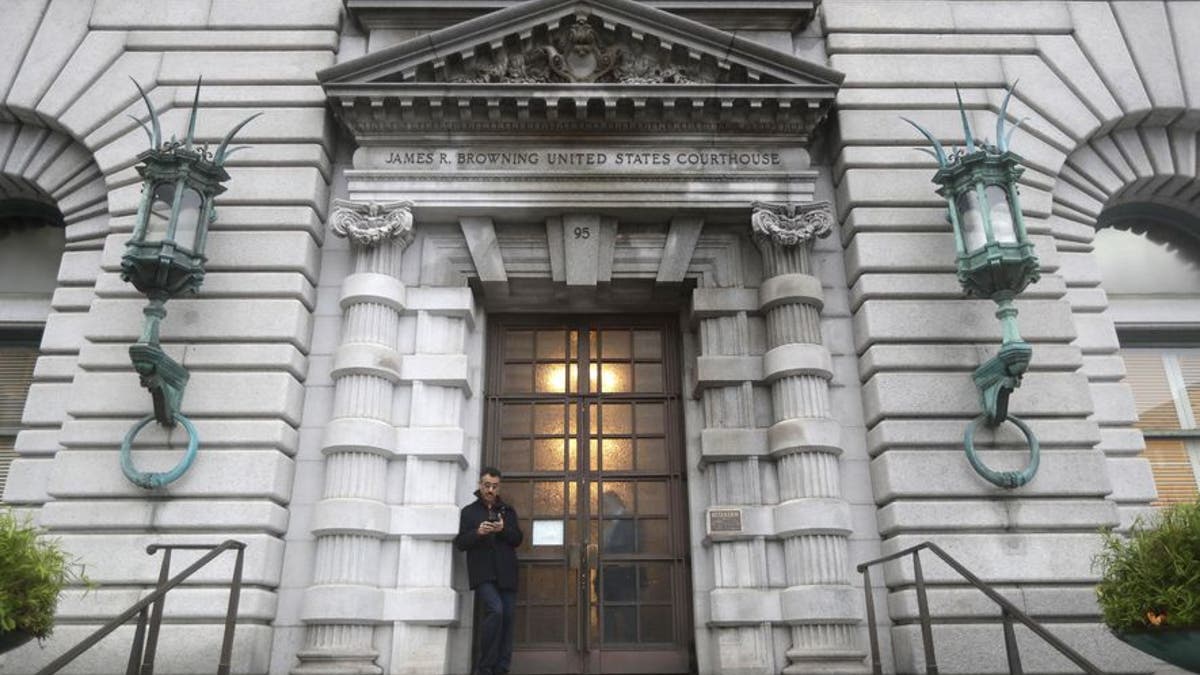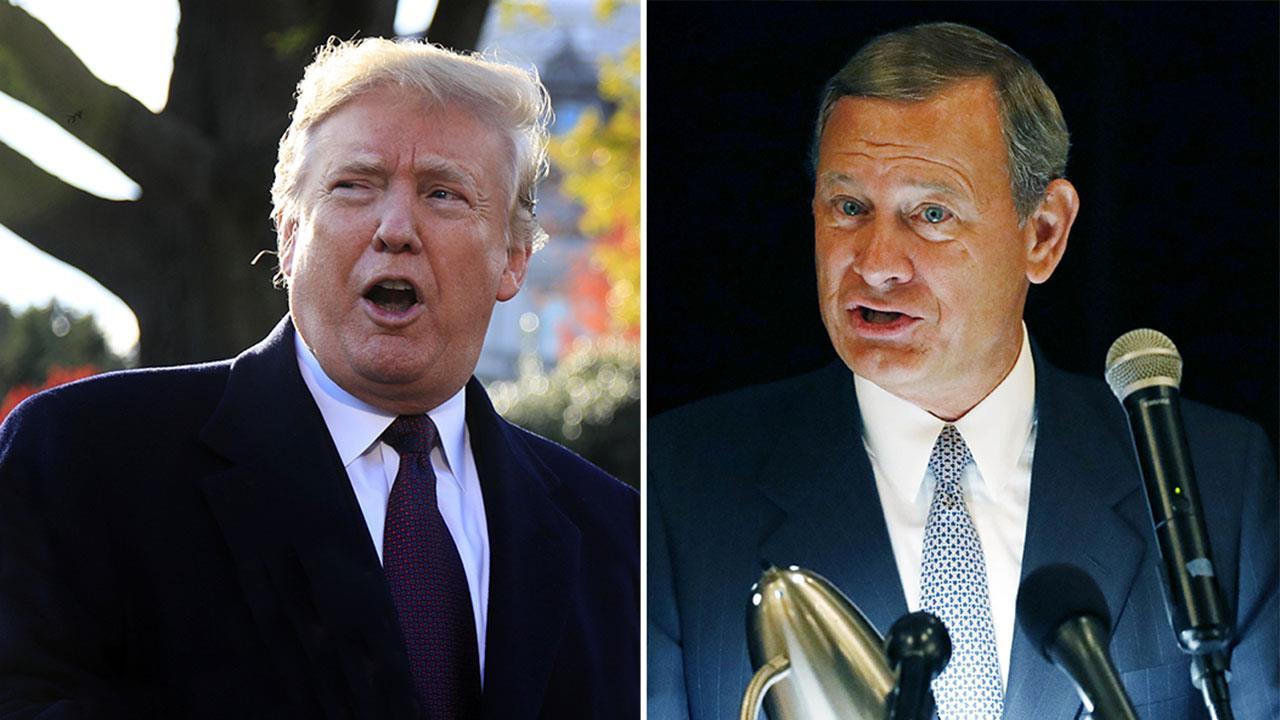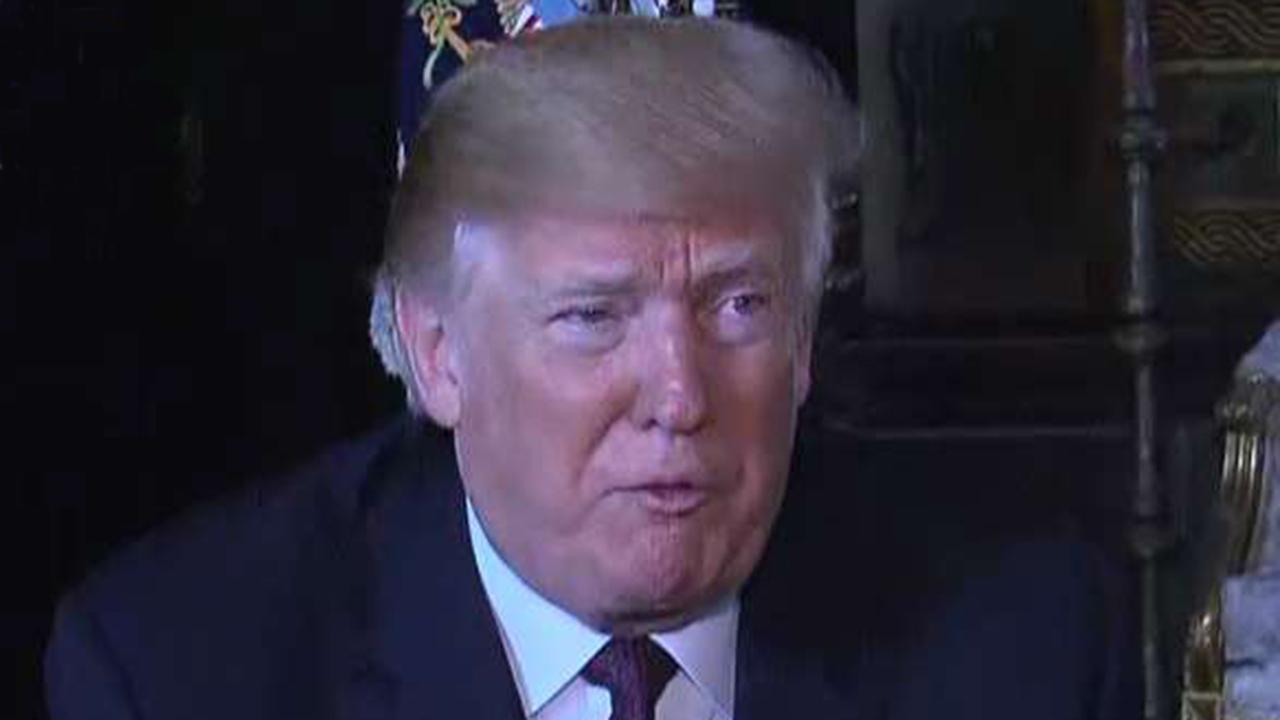Dems challenge Trump judicial nominee over Knights of Columbus membership
A slew of nominations, intended to quell concerns about a lack of progress installing more conservative judges.
The White House on Tuesday announced the re-nomination of 51 federal judicial nominees left over from the previous Congress, kickstarting the administration's effort to install more conservative judges after GOP activists worried that such appointments had stalled.
Nine of the 51 appointments are for spots on prestigious and influential federal appellate benches, including two on the mostly liberal San Francisco-based 9th Circuit Court of Appeals, which President Trump has often derided as "disgraceful" and politically biased.
“I truly appreciate the prompt attention President Trump and his White House team have shown to judicial nominations," Senate Judiciary Committee Chairman Lindsey Graham, R-S.C., said in a statement Wednesday. "I also appreciate the list of 51 impressive judicial nominations to fulfill the Senate’s constitutional role in advice and consent."
Graham vowed that the committee "will immediately begin working on these important nominations and trying to confirm as many as possible, as soon as possible.”
Neomi Rao, the president's "regulatory czar," who would take now-Supreme Court Associate Justice Brett Kavanaugh's vacated seat on the D.C. Circuit Court of Appeals, is on the list. Case Western University School of Law professor and Washington Post commentator Jonathan H. Adler wrote when Rao first joined the administration that "Trump's selection of Rao suggests the administration is serious about regulatory reform, not merely reducing high-profile regulatory burdens."
Also on the roll was Brian Buescher, for a seat as United States district judge for the District of Nebraska. In December, Sens. Kamala Harris, D-Calif., and Mazie Hirono, D-Hawaii, raised concerns about the Omaha-based lawyer's membership in the Knights of Columbus, a Catholic service organization -- prompting legal commentators to suggest the Democrats were engaging in religious discrimination.
“The Knights of Columbus has taken a number of extreme positions,” Hirono said in a questionnaire sent to Buescher. “For example, it was reportedly one of the top contributors to California’s Proposition 8 campaign to ban same-sex marriage.”
Harris, in her questions to the nominee, called the Knights of Columbus “an all-male society” and asked the Nebraska lawyer if he was aware that the group was anti-abortion and opposed to same-sex marriage when he joined.
The California senator and 2020 presidential hopeful also referenced Supreme Knight Carl A. Anderson’s statement that abortion amounted to “the killing of the innocent on a massive scale” and asked Buescher if he agreed with the statement.
In his response, Buescher argued that the Knights of Columbus’ official positions on issues do not represent every one of the group’s members and said he would recuse himself from hearing cases where he saw a conflict of interest.
“The Knights of Columbus does not have the authority to take personal political positions on behalf of all of its approximately two million members,” Buescher wrote. “If confirmed, I will apply all provisions of the Code of Conduct for United States Judges regarding recusal and disqualification.”

The Ninth Circuit Court of Appeals in San Francisco has long drawn the ire of President Trump, who has called it "disgraceful." (AP)
In an Op-Ed this week in The Washington Post entitled "Anti-Catholic bigotry is alive in the U.S. Senate," columnist Michael Gerson wrote that questions like the ones from Harris and Hirono were inappropriate and "scare the hell out of vast sections of the country."
Missing from the list of re-nominated judges, for now, were three conservatives the White House has said it will install on the Ninth Circuit without first seeking what's known as a "blue slip," or an opinion, from California senators Sens. Dianne Feinstein and Harris.
The White House announced in October Trump had nominated Patrick Bumatay, Daniel Collins and Kenneth Kiyul Lee (all from the Golden State, and reportedly all members of the conservative Federalist Society) to the 9th Circuit, bypassing the traditional blue slip process in an apparent snub of Feinstein and Harris.
The liberal Ninth Circuit Court of Appeals, with a sprawling purview representing nine Western states, has long been a thorn in the side of the Trump White House, with rulings against the travel ban and limits on funding to "sanctuary cities."
The Judicial Crisis Network announced in a statement it would launch a $1.5 million national advertising campaign on both television and the Internet calling on Democrats to support the 51 judges, and noting that there are an "unprecedented 163 judicial vacancies in the federal court system."
“Because of Democrats’ unprecedented obstruction of judicial nominees, we now have significantly more vacancies than when President Trump took office," Judicial Crisis Network Chief Counsel and Policy Director Carrie Severino said in a statement.
"Senator McConnell has restated his commitment to filling the vacancies and has maintained that this is a Senate priority. It’s time for Democrats to end the bullying and smear campaigns and confirm the judges," Severino added.
The nominations seemed poised to quiet growing conservative unrest about the relative lack of news on appointments during the ongoing partial federal government shutdown, which commenced Dec. 22. Six new appointments to federal district courts, which are effectively trial courts, were announced by the White House last week.
“People are starting to scratch their heads and wonder, ‘When are we going to start up again?" one source close to the White House told Politico earlier this month.
The White House, along with Senate GOP leaders, has made appointing conservative judges and justices a key priority. Under the Trump administration, 85 federal judges have been installed, including Associate Supreme Court Justices Neil Gorsuch and Brett Kavanaugh, and 30 appellate judges.
CLICK HERE TO GET THE FOX NEWS APP
Senate Democrats previously eliminated the filibuster for federal judicial nominees below the Supreme Court level during the Obama administration, meaning that each of the 51 nominees needs only a majority vote in the Senate to win confirmation.
Once they claimed their current Senate majority, Republicans, in response, eliminated the filibuster for Supreme Court nominees as well.
Fox News' Judd Berger and Andrew O'Reilly contributed to this report.















































